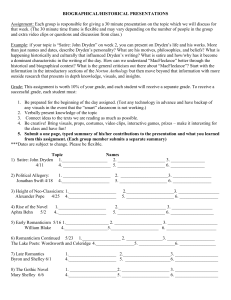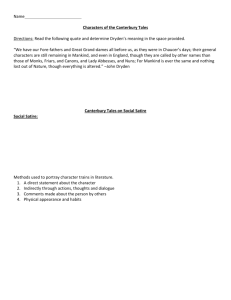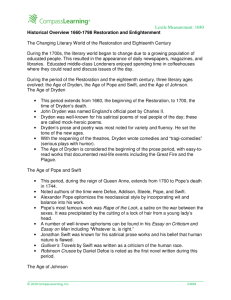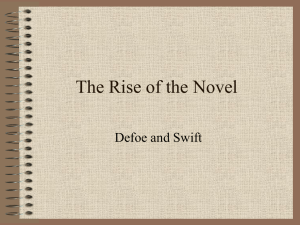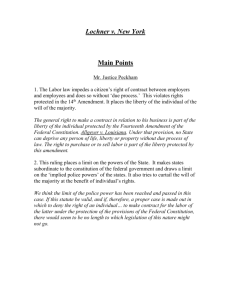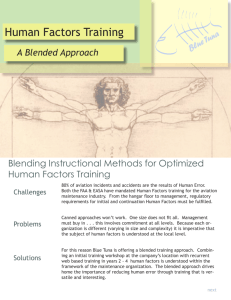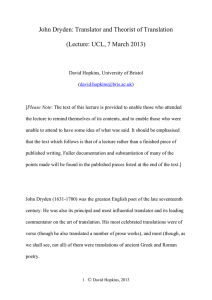Are Schools Suppressing The Constitution?
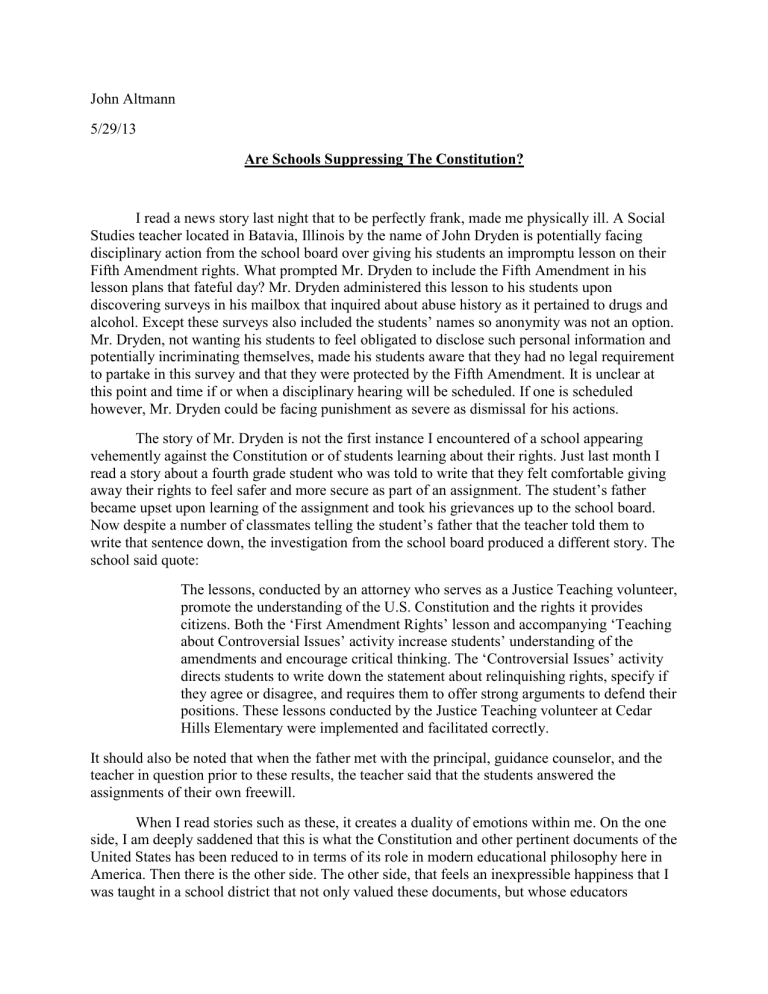
John Altmann
5/29/13
Are Schools Suppressing The Constitution?
I read a news story last night that to be perfectly frank, made me physically ill. A Social
Studies teacher located in Batavia, Illinois by the name of John Dryden is potentially facing disciplinary action from the school board over giving his students an impromptu lesson on their
Fifth Amendment rights. What prompted Mr. Dryden to include the Fifth Amendment in his lesson plans that fateful day? Mr. Dryden administered this lesson to his students upon discovering surveys in his mailbox that inquired about abuse history as it pertained to drugs and alcohol. Except these surveys also included the students’ names so anonymity was not an option.
Mr. Dryden, not wanting his students to feel obligated to disclose such personal information and potentially incriminating themselves, made his students aware that they had no legal requirement to partake in this survey and that they were protected by the Fifth Amendment. It is unclear at this point and time if or when a disciplinary hearing will be scheduled. If one is scheduled however, Mr. Dryden could be facing punishment as severe as dismissal for his actions.
The story of Mr. Dryden is not the first instance I encountered of a school appearing vehemently against the Constitution or of students learning about their rights. Just last month I read a story about a fourth grade student who was told to write that they felt comfortable giving away their rights to feel safer and more secure as part of an assignment. The student’s father became upset upon learning of the assignment and took his grievances up to the school board.
Now despite a number of classmates telling the student’s father that the teacher told them to write that sentence down, the investigation from the school board produced a different story. The school said quote:
The lessons, conducted by an attorney who serves as a Justice Teaching volunteer, promote the understanding of the U.S. Constitution and the rights it provides citizens. Both the ‘First Amendment Rights’ lesson and accompanying ‘Teaching about Controversial Issues’ activity increase students’ understanding of the amendments and encourage critical thinking. The ‘Controversial Issues’ activity directs students to write down the statement about relinquishing rights, specify if they agree or disagree, and requires them to offer strong arguments to defend their positions. These lessons conducted by the Justice Teaching volunteer at Cedar
Hills Elementary were implemented and facilitated correctly.
It should also be noted that when the father met with the principal, guidance counselor, and the teacher in question prior to these results, the teacher said that the students answered the assignments of their own freewill.
When I read stories such as these, it creates a duality of emotions within me. On the one side, I am deeply saddened that this is what the Constitution and other pertinent documents of the
United States has been reduced to in terms of its role in modern educational philosophy here in
America. Then there is the other side. The other side, that feels an inexpressible happiness that I was taught in a school district that not only valued these documents, but whose educators
instilled in me and emphasized their significance in relation to our country and my rights as a citizen. When I was in fourth grade, there was never a lesson that posed the question of whether we would give up our rights to feel safer and more secure. On the contrary, when I was in fourth grade I was taught the words of Benjamin Franklin as it pertained to liberty and rights when he said quote: “Those who would give up essential liberty to purchase a little temporary safety deserve neither liberty nor safety.” I never forgot those words and I recite them in the faces of those who support such legislation as the Patriot Act, SOPA, CISPA, and the recent string of gun legislation. When I heard what was happening to Mr. Dryden I went back and I read a copy of the Bill of Rights that I keep saved on my computer. As I was reading it I could not help but shake my head as I reflected on the fact that Mr. Dryden could be reprimanded for being an educator! He could be reprimanded simply for heightening the awareness of his students about rights they already possessed as American citizens! What was the school so afraid of? Why does the new educational philosophy in schools seem to be to suppress awareness of the Constitution and the Bill of Rights from the students? To answer that one needs only to examine the teleological purposes of schools and government as well as the relationship that exists between these two entities.
We know that the alleged teleological design of schools and the educational system as a whole is to impart knowledge. ( At least in my opinion that should be the teleological design of any educational institution.) Furthermore, Aristotle asserted that the teleological design of government was the promotion of virtue. I believe the virtue of this design is derived directly from the citizens. After all, in our current democratic system (Yes I know that America is truly a
Constitutional Republic but tell that to the masses.) our representatives are a reflection of the majority vote. However, how can we possibly promote virtue in our government after our representatives have been voted in if we do not comprehend the very framework that gives us this power? This is where my personal qualm with this story rises. Mr. Dryden was merely contributing to the chain of Teleology that ultimately cultivates our society. By imparting
Constitutional knowledge to the students they gain a heightened awareness of their rights and the workings of government. Such awareness then empowers the student to properly police their government when their representatives are trying to go against the teleological design. Now not wanting to get into moral philosophy about what virtue is or Epistemology about how one defines knowledge (Though perhaps those conversations are more necessary than I believe.) this whole situation was ultimately about a man trying to better society through the education of his students on rights they already possessed. The difference is not in the existence or nonexistence of these rights but rather these rights being powerful as opposed to being powerless . That is why
Mr. Dryden is potentially going to be disciplined and that is why I have been seeing stories about schools trying to shield kids from the Constitution.
Now guys I know the Constitution is not a perfect document and that is why it is susceptible to changes when necessary, but am I the only one who’s really disturbed about what is going on here? How many of these kids do you believe have read the Bill of Rights? How many of these kids do you believe realize that it is their Constitutional right to revolt against their government should they justly feel it is pursuing tyranny over liberty? I am not trying to sound like a conspiracy theorist nut but when I hear stories like Mr. Dryden’s I become sick to my stomach! Schools like this no longer uphold the beliefs of enriching minds and empowering future generations. Schools like this have opted instead to be institutions that uphold the belief of information control. While I was reading Albert Camus' essay on the rebel he made one very
poignant statement: That the rebel is the man who has an awareness of his rights. Schools such as the ones I discussed and perhaps even our own government do not want a generation of free thinkers or policemen of liberty. Instead they desire to take an ideological detour towards a more
Taoist philosophy which asserts: “The best government is one that keeps the bellies full and the minds empty.” This is seems to be the new teleological design of the educational system. To exalt the ideal that government will provide for you and handle everything to the highest possible level through the teachings of the educators. Such teachings will see that the students’ minds are submissive to this ideal and embrace it wholeheartedly. It is then that the inalienable rights that made this country even in its darkest hours so great become nothing more than a distant memory and on par with Utopian ideals. This story does have a silver lining however. People from all across the country exercised their First Amendment right in the wake of the John Dryden controversy and have petitioned that the school board not take disciplinary action of any kind against Mr. Dryden. I just hope that the school board does not find the First Amendment as ludicrous as they seemed to find the Fifth Amendment for Mr. Dryden’s sake.
